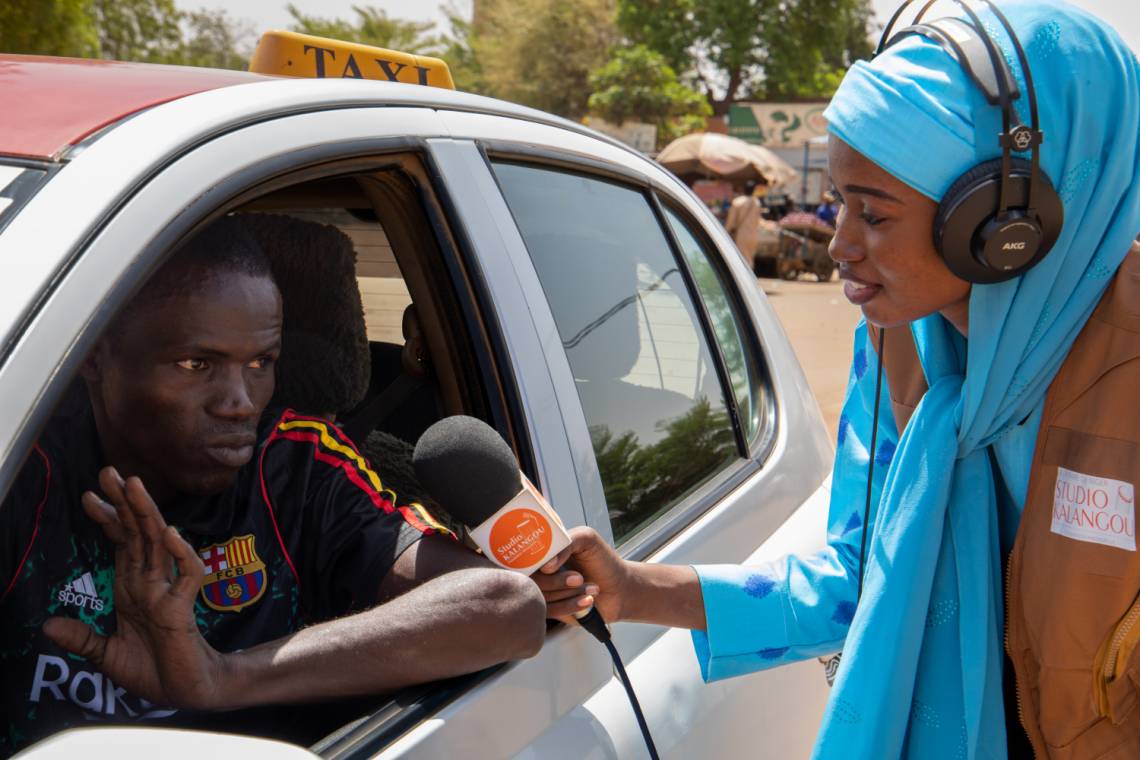World Press Freedom Day is 30 years old. The day reminds governments of the need to respect their commitment to press freedom. May 3 is also an opportunity to assess press freedom around the world and to defend the independence of the media. In 2023, press freedom is still under threat. The truth is plagued by disinformation and conspiracy theories that seek to blur the line between fact and fiction.
Fondation Hirondelle, in collaboration with its media partners in the Sahel, Central Africa, Madagascar and Tunisia, celebrated this day with a multitude of external activities, debates and magazines dedicated to the challenges of the press.
"Thirty Years of UN Peacekeeping Radio: Lessons for UN Media in a Changing Information Environment" was the focus of a policy forum jointly organised by the International Peace Institute, Fondation Hirondelle and UNESCO. According to our Director Caroline Vuillemin, promoting a healthy information environment and supporting robust local media are key to ensuring access to information for all. Listen to the full panel, which also included speakers from UNESCO, South Sudan and Côte d'Ivoire, by clicking on this link.
In the Central African Republic, a major conference organised by Radio Ndeke Luka and its partners on "An independent press, a perfect tool to ensure justice and protect human rights" brought together participants from all sides. The day was also punctuated by programmes dedicated to press freedom.
In Mali, the televised debate, the Grand Dialogue, as well as various programmes focused on the state of press freedom in the country. The launch of the week was also marked by a public conference. Our national representative Martin Faye also took the opportunity to share his experience with Studio Tamani on the stage of Renouveau TV.
In Niger, Studio Kalangou organised an open day. School classes from different levels, donors and partners were invited for fruitful and interesting exchanges. Prizes were awarded to regular radio presenters to thank them for listening. A radio debate was also held as part of their "Forum" programme. Participants gave their views on mechanisms to consolidate press freedom gains in the country.
Studio Yafa in Burkina Faso opted for a long format, a podcast that travelled around the country to give voice to media men and women. It aimed to answer the question: Why do we become journalists in Burkina Faso? This was a way of addressing the values of the press profession, but also of highlighting its constraints. Press freedom was also at the heart of a debate held in the second largest city in Faso, Bobo-Dioulasso.
In Madagascar, our partners from Studio Sifaka decided to analyse the evolution of the country in the ranking established each year by Reporters Without Borders. The Big Island has lost 50 places in 5 years. A training session, broadcast online and organised with UNESCO, as well as a conference led by the studio were organised at the beginning of the week to fuel the reflections around this day dedicated to press freedom.
Finally, in Tunisia, our media partners broadcast discussion programmes on the importance of local journalism and the difficulties encountered on a daily basis by local correspondents and media. This was also an opportunity to draw a first assessment of the programme "Active Participation of Tunisian Citizens".




